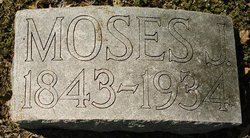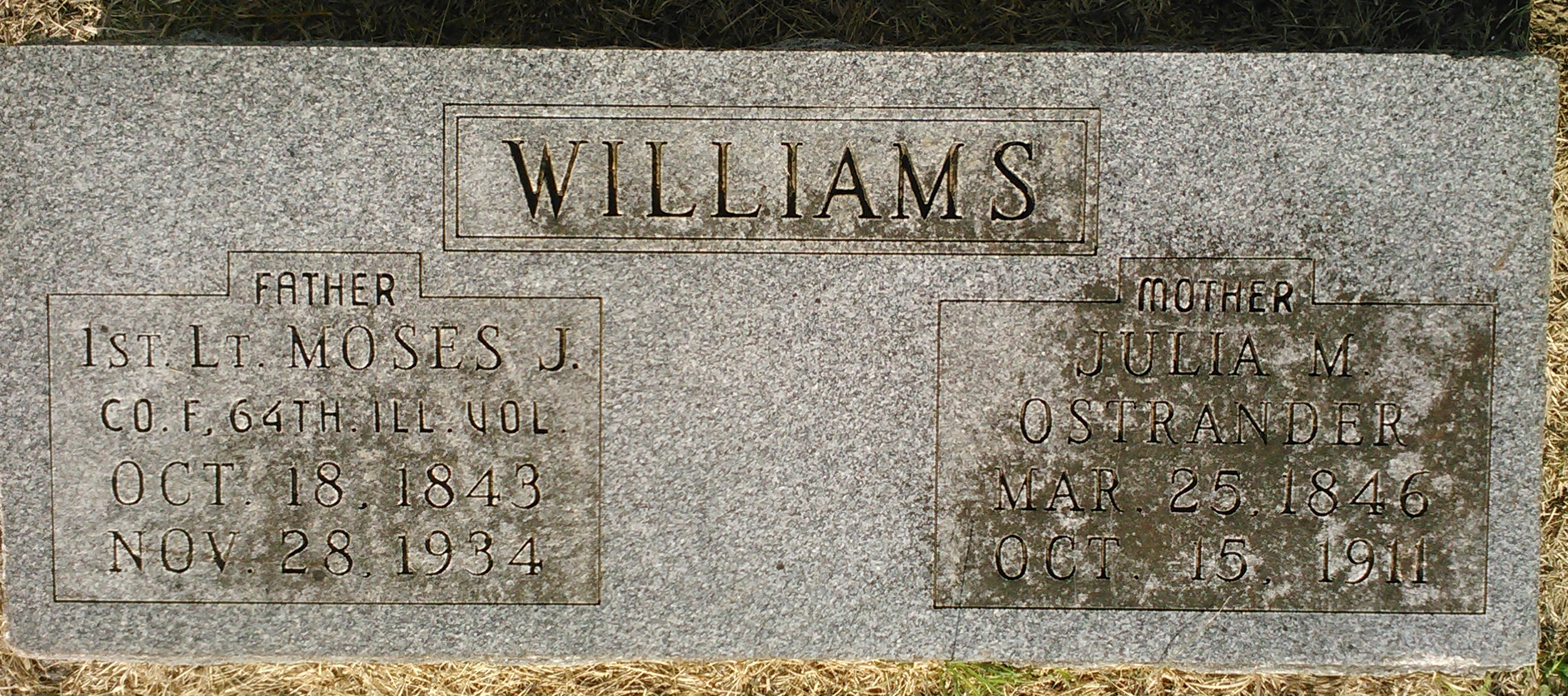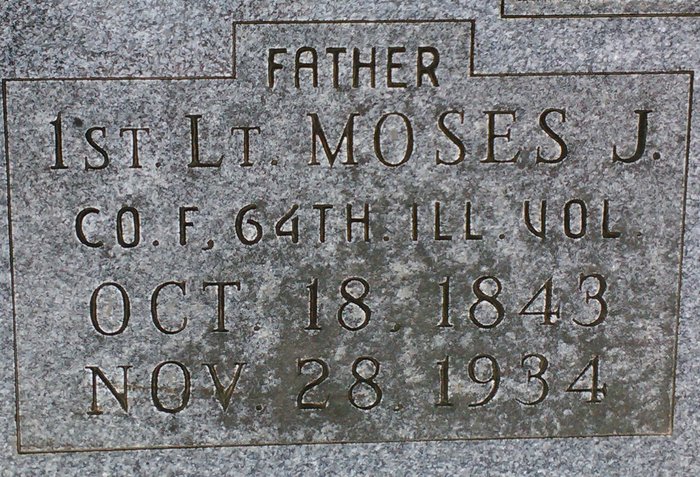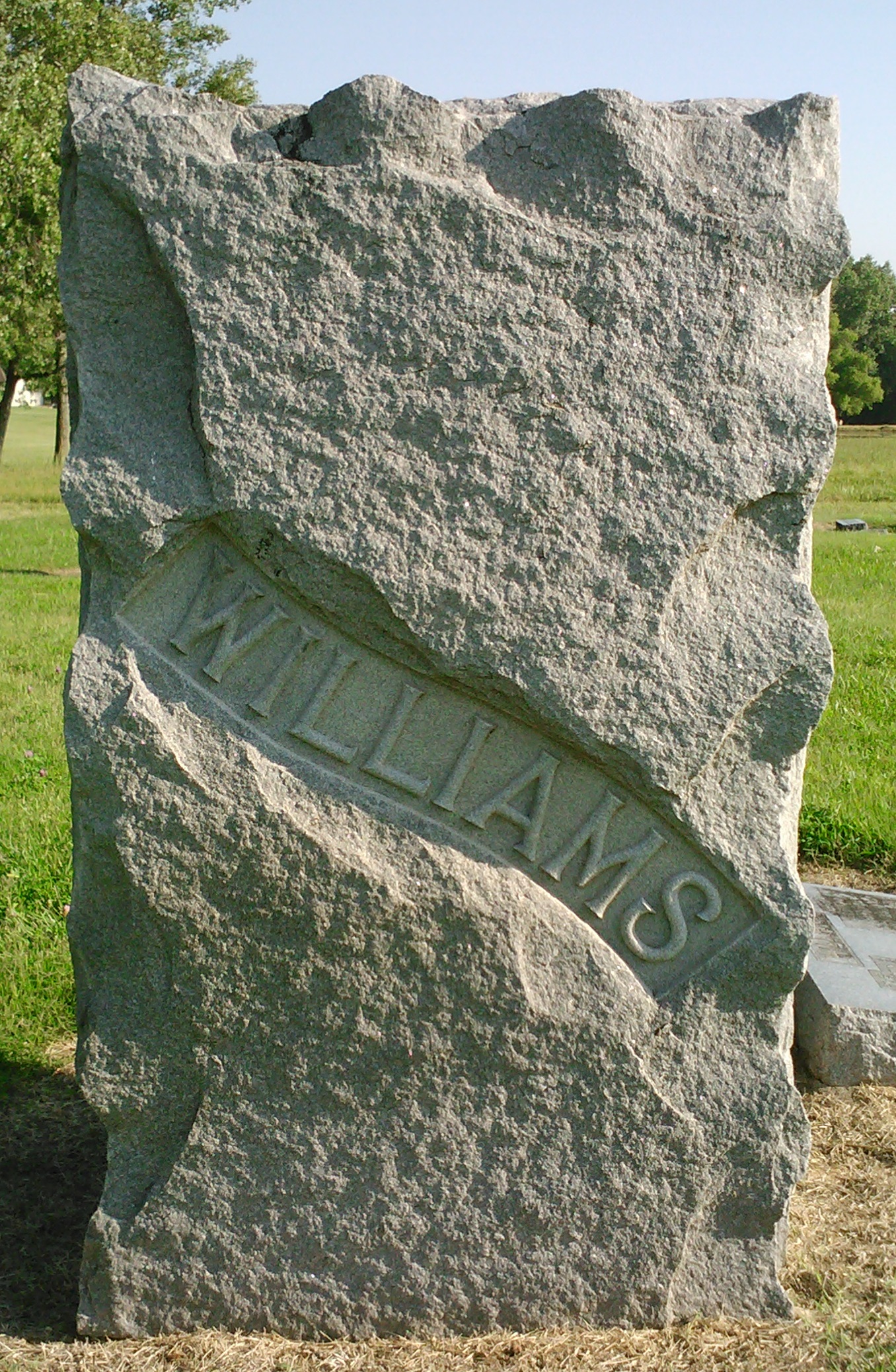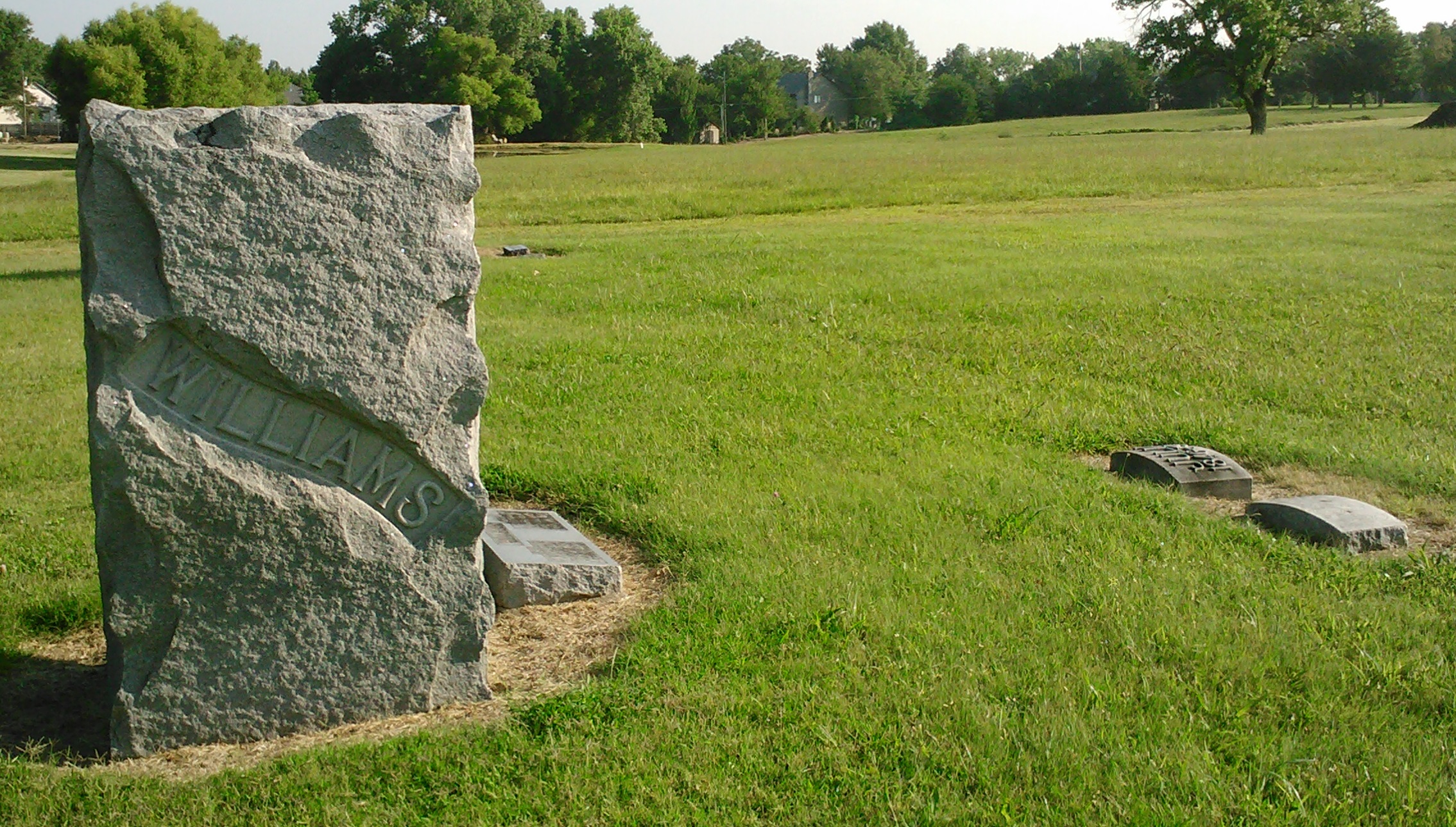********************************************
The Emporia Gazette, 04 Jul 1934, Wed
REMEMBERS MARCH TO SEA
MOSES WILLIAMS TELLS OF HIS CIVIL WAR EXPERIENCES
Moses Justus Williams, 1304 Walnut, is one of the Civil War veterans who marched with Sherman to the sea and at 93 his memory of those stirring days is clear and accurate. He enlisted at the age of 18 in Fountain Green, Ill., in Company F, Governor Yates's Sharpshooters, January 1, 1862, and served six months under Lieutenant Colonel Madison, who was in command of six companies, or one battalion. Colonel Madison died at Clear Springs, Miss., and Major Morrell took command. Mr. Williams enlisted as a private and was mustered out, at the close of the war, as a first lieutenant.
He reenlisted January 1, 1864, at Pulaski, Tenn., in the 64th Illinois Regiment, formerly the Yates Sharpshooters, in his old Company F, serving a year and a half. During his two enlistments, he took part in 42 distinct skirmishes and battles. The men of the 64th were equipped with repeating Hussar rifles, 16-shooters, with 100 rounds of ammunition to the man. At the battle of Peach Tree Creek, Colonel Morrell received two wounds and 96 of his men were killed. "Men fell, mortally wounded, on each side of me," said Mr. Williams, "but I never received a wound. I was sick and in hospital at Hamburg Landing, Tenn. I have seen thousands of dead men piled up like cordwood, and often I saw their burial. Long, deep trenches were dug, long hooks were caught beneath the dead men's chins and the bodies dragged to the one common grave"
THE MARCH TO THE SEA
After the fall of Atlanta, came the long march to the sea, and following the surrender the march to Washington for the grand review. "At Atlanta we were issued three days' rations, and it was 15 days before we got any more. I offered $20 for a hardtack, but if any man had one, he wanted it more than he wanted my $20," says Mr. Williams. He tells the story of Prince Bismarck, sitting in the reviewing stand with General Sherman, in Washington at the grand review, who said, "I can understand why the North has won. With men such as these you could march through hell."
Mr. Williams, whose forbears for several generations had been pioneers, felt the stirring of his pioneer blood, and in 1858 he came to Kansas, driving a team of horses hitched to a covered wagon. He wanted more and cheaper land than he could secure in Illinois. His father died when he was 4, his mother when he was a little past 5, and until 14 he lived with various relatives and afterward was on his own. Arrived in Kansas, he bought 80 acres of partially improved land, 12 miles north of Emporia--the improvements consisting of 10 acres in cultivation and a log cabin. By 1881 he had acquired 400 acres of land and then built a big house and substantial outbuildings. He raised cattle and hogs for market and made the business pay. He went largely into poultry raising and kept from 800 to 1,000 hens. He built a stone poultry house, 22 x 40, laid up with mortar and cemented inside. It still is in good condition.
Mr. Williams enjoys recalling how, when he hired two farm hands, one summer, at $22 a month, he offered to pay them in all the eggs produced on the place except those needed for table use. The men jeered at the idea, so he paid them in cash. He kept books on his egg sales, and at the end of the summer found he had sold eggs enough to pay the men and buy all the groceries for the family, in addition to those for home use. They sold large quantities of butter as well as eggs, all the family worked, and they prospered. Mr. Williams said hogs paid better than cattle, as they required so much less feed to put them in condition for market.
TO EMPORIA IN 1895
In 1895 Mrs. Williams's health was failing, and to make life easier for her, the family moved to Emporia. They bought lots at 918 State, built the house which was Mrs. Williams's home until her death in 1911, and was Mr. Williams's home until 1923. This house is now occupied by a daughter and a granddaughter. Mr. Williams built a home in Illinois, the home on the farm and a shack to hold Kaw reserve land which he bought from the government, the State Street house, and the Walnut Street house, and a house on a 10-acre tract on West Sixth occupied by a granddaughter and her husband, Mr. and Mrs. Fred Joergensen. His first 80 acres of Kansas land cost him $1,000, he paid the late Col. J. M. Steele $1,000 for an adjoining quarter section, and for the Kaw land he paid $5 an acre. All of the land he bought, with the exception of his first 80, still is owned by members of the family. He gave each of his children a quarter section.
Moses Williams owned one of the first Maxwell cars in Emporia, having bought it in 1908. He drove a car until his failing sight made driving unsafe. "It is a far cry," he says, "from the linchpin wagons and the ox teams of my boyhood to the automobile and the airplane and to all the other wonderful inventions of this twentieth century."
Moses Williams was born at Rushville, Ill., October 18, 1843. He was married to Miss Julia Ostrander, in Hancock County, Illinois, February 18, 1864. She was born at Golden Point, at Nauvoo, Ill. Three of their four children are living: Lincoln, who lives on a part of the home place; Mrs. Edna Williams, 918 State, and Dr. O'Dell Justus Williams, 1015 Walnut. There are four living grandchildren and two great-grandchildren.
Mr. Williams was a member of the Grand Army post at Americus until it disbanded, and he was one of the organizers of the Masonic lodge at Allen. For many years he was a member of the order in Emporia.--L. M. F.
********************************************
The Emporia Gazette, 06 Jul 1934, Fri
A CORRECTION
Moses Williams, the Civil war veteran concerning whom a story was printed in the Gazette Wednesday, has three living grandchildren and an adopted daughter instead of four grandchildren as stated in the story. Miss Catherine Williams is the adopted daughter. Another daughter, whose name appeared in the story, as Mrs. Edna Williams, is Mrs. Edith Williams.
********************************************
The Emporia Gazette, 28 Nov 1934, Wed
MOSES J. WILLIAMS DEAD
Moses Justus Williams, a retired farmer and a Civil war veteran, died at 8 o'clock this morning at his home, 1304 Walnut.
Mr. Williams was an early day settler in Lyon County. He came to Kansas in 1868 from Illinois, driving a team of horses hitched to a covered wagon, and bought 80 acres of land 12 miles north of Emporia, on which was a log cabin. He was born in Rushville, Ill., October 18, 1843. His parents both died when he was a small boy, and until he was 14 years old he lived with relatives. He married Miss Julia M. Ostrander in Hancock county, Illinois, February 18, 1864.
By 1881 Mr. Williams had increased his holdings to 400 acres, and he built a large house and substantial outbuildings. He specialized in the raising of cattle, hogs and poultry. In 1895 the family moved to Emporia because of the failing health of Mrs. Williams, and Mr. Williams built a house at 918 State where he lived until 1923. Mrs. Williams died there in October, 1911.
Mr. Williams was one of the Civil war veterans who marched with Sherman to the sea. He enlisted January 1, 1862, in Fountain Green, Ill., in Company F, Governor Yates's Sharpshooters. He was 18 years old at the time. He re-enlisted January 1, 1864, at Pulaski, Tenn., in the 64th Illinois Regiment, formerly the Yates Sharpshooters, in his old Company F, serving a year and a half. During his two enlistments he took part in 42 battles and skirmishes. He was never wounded, but was sick and in a hospital at Hamburg Landing, Tenn. Mr. Williams enlisted as a private and was mustered out at the close of the war as a first lieutenant.
Mr. Williams is survived by two sons, A. L. Williams, Americus, and Dr. O'Dell Williams, Emporia; one daughter, Mrs. C. Edia Williams, Emporia; two grandsons, Justus A. Williams and Oliver L. Williams, Americus; two granddaughters, Mrs. Elizabeth L. Joergensen and Miss Capy I. Williams, Emporia; a brother, Frank Williams, Spokane, Wash., and two great-grandchildren, Ina Laura Henry and E. Louise Joergensen. Mr. Williams was one of the organizers of the Masonic lodge at Allen, and for many years was a member of the order in Emporia. He was a member of the Grand Army post in Americus until it disbanded.
Funeral arrangements have not been made.
********************************************
The Emporia Gazette, 04 Dec 1934, Tue
FUNERAL OF MOSES J. WILLIAMS
Funeral services for Moses J. Williams, Civil war veteran, who died Wednesday morning, were held at 3:30 o'clock Monday afternoon in the Sutton Funeral Home. Rev. J. H. J. Rice, pastor emeritus of the First Congregational church, conducted the services. Mrs. Lloyd Burton sang, playing her own accompaniment. Interment was made in Maplewood cemetery. The pallbearers were Lloyd L. Burton, Bryant Brewer, Robert Beach, O. V. Stewart, Lewis Tile and George Moyes.
********************************************
The Emporia Gazette, 04 Jul 1934, Wed
REMEMBERS MARCH TO SEA
MOSES WILLIAMS TELLS OF HIS CIVIL WAR EXPERIENCES
Moses Justus Williams, 1304 Walnut, is one of the Civil War veterans who marched with Sherman to the sea and at 93 his memory of those stirring days is clear and accurate. He enlisted at the age of 18 in Fountain Green, Ill., in Company F, Governor Yates's Sharpshooters, January 1, 1862, and served six months under Lieutenant Colonel Madison, who was in command of six companies, or one battalion. Colonel Madison died at Clear Springs, Miss., and Major Morrell took command. Mr. Williams enlisted as a private and was mustered out, at the close of the war, as a first lieutenant.
He reenlisted January 1, 1864, at Pulaski, Tenn., in the 64th Illinois Regiment, formerly the Yates Sharpshooters, in his old Company F, serving a year and a half. During his two enlistments, he took part in 42 distinct skirmishes and battles. The men of the 64th were equipped with repeating Hussar rifles, 16-shooters, with 100 rounds of ammunition to the man. At the battle of Peach Tree Creek, Colonel Morrell received two wounds and 96 of his men were killed. "Men fell, mortally wounded, on each side of me," said Mr. Williams, "but I never received a wound. I was sick and in hospital at Hamburg Landing, Tenn. I have seen thousands of dead men piled up like cordwood, and often I saw their burial. Long, deep trenches were dug, long hooks were caught beneath the dead men's chins and the bodies dragged to the one common grave"
THE MARCH TO THE SEA
After the fall of Atlanta, came the long march to the sea, and following the surrender the march to Washington for the grand review. "At Atlanta we were issued three days' rations, and it was 15 days before we got any more. I offered $20 for a hardtack, but if any man had one, he wanted it more than he wanted my $20," says Mr. Williams. He tells the story of Prince Bismarck, sitting in the reviewing stand with General Sherman, in Washington at the grand review, who said, "I can understand why the North has won. With men such as these you could march through hell."
Mr. Williams, whose forbears for several generations had been pioneers, felt the stirring of his pioneer blood, and in 1858 he came to Kansas, driving a team of horses hitched to a covered wagon. He wanted more and cheaper land than he could secure in Illinois. His father died when he was 4, his mother when he was a little past 5, and until 14 he lived with various relatives and afterward was on his own. Arrived in Kansas, he bought 80 acres of partially improved land, 12 miles north of Emporia--the improvements consisting of 10 acres in cultivation and a log cabin. By 1881 he had acquired 400 acres of land and then built a big house and substantial outbuildings. He raised cattle and hogs for market and made the business pay. He went largely into poultry raising and kept from 800 to 1,000 hens. He built a stone poultry house, 22 x 40, laid up with mortar and cemented inside. It still is in good condition.
Mr. Williams enjoys recalling how, when he hired two farm hands, one summer, at $22 a month, he offered to pay them in all the eggs produced on the place except those needed for table use. The men jeered at the idea, so he paid them in cash. He kept books on his egg sales, and at the end of the summer found he had sold eggs enough to pay the men and buy all the groceries for the family, in addition to those for home use. They sold large quantities of butter as well as eggs, all the family worked, and they prospered. Mr. Williams said hogs paid better than cattle, as they required so much less feed to put them in condition for market.
TO EMPORIA IN 1895
In 1895 Mrs. Williams's health was failing, and to make life easier for her, the family moved to Emporia. They bought lots at 918 State, built the house which was Mrs. Williams's home until her death in 1911, and was Mr. Williams's home until 1923. This house is now occupied by a daughter and a granddaughter. Mr. Williams built a home in Illinois, the home on the farm and a shack to hold Kaw reserve land which he bought from the government, the State Street house, and the Walnut Street house, and a house on a 10-acre tract on West Sixth occupied by a granddaughter and her husband, Mr. and Mrs. Fred Joergensen. His first 80 acres of Kansas land cost him $1,000, he paid the late Col. J. M. Steele $1,000 for an adjoining quarter section, and for the Kaw land he paid $5 an acre. All of the land he bought, with the exception of his first 80, still is owned by members of the family. He gave each of his children a quarter section.
Moses Williams owned one of the first Maxwell cars in Emporia, having bought it in 1908. He drove a car until his failing sight made driving unsafe. "It is a far cry," he says, "from the linchpin wagons and the ox teams of my boyhood to the automobile and the airplane and to all the other wonderful inventions of this twentieth century."
Moses Williams was born at Rushville, Ill., October 18, 1843. He was married to Miss Julia Ostrander, in Hancock County, Illinois, February 18, 1864. She was born at Golden Point, at Nauvoo, Ill. Three of their four children are living: Lincoln, who lives on a part of the home place; Mrs. Edna Williams, 918 State, and Dr. O'Dell Justus Williams, 1015 Walnut. There are four living grandchildren and two great-grandchildren.
Mr. Williams was a member of the Grand Army post at Americus until it disbanded, and he was one of the organizers of the Masonic lodge at Allen. For many years he was a member of the order in Emporia.--L. M. F.
********************************************
The Emporia Gazette, 06 Jul 1934, Fri
A CORRECTION
Moses Williams, the Civil war veteran concerning whom a story was printed in the Gazette Wednesday, has three living grandchildren and an adopted daughter instead of four grandchildren as stated in the story. Miss Catherine Williams is the adopted daughter. Another daughter, whose name appeared in the story, as Mrs. Edna Williams, is Mrs. Edith Williams.
********************************************
The Emporia Gazette, 28 Nov 1934, Wed
MOSES J. WILLIAMS DEAD
Moses Justus Williams, a retired farmer and a Civil war veteran, died at 8 o'clock this morning at his home, 1304 Walnut.
Mr. Williams was an early day settler in Lyon County. He came to Kansas in 1868 from Illinois, driving a team of horses hitched to a covered wagon, and bought 80 acres of land 12 miles north of Emporia, on which was a log cabin. He was born in Rushville, Ill., October 18, 1843. His parents both died when he was a small boy, and until he was 14 years old he lived with relatives. He married Miss Julia M. Ostrander in Hancock county, Illinois, February 18, 1864.
By 1881 Mr. Williams had increased his holdings to 400 acres, and he built a large house and substantial outbuildings. He specialized in the raising of cattle, hogs and poultry. In 1895 the family moved to Emporia because of the failing health of Mrs. Williams, and Mr. Williams built a house at 918 State where he lived until 1923. Mrs. Williams died there in October, 1911.
Mr. Williams was one of the Civil war veterans who marched with Sherman to the sea. He enlisted January 1, 1862, in Fountain Green, Ill., in Company F, Governor Yates's Sharpshooters. He was 18 years old at the time. He re-enlisted January 1, 1864, at Pulaski, Tenn., in the 64th Illinois Regiment, formerly the Yates Sharpshooters, in his old Company F, serving a year and a half. During his two enlistments he took part in 42 battles and skirmishes. He was never wounded, but was sick and in a hospital at Hamburg Landing, Tenn. Mr. Williams enlisted as a private and was mustered out at the close of the war as a first lieutenant.
Mr. Williams is survived by two sons, A. L. Williams, Americus, and Dr. O'Dell Williams, Emporia; one daughter, Mrs. C. Edia Williams, Emporia; two grandsons, Justus A. Williams and Oliver L. Williams, Americus; two granddaughters, Mrs. Elizabeth L. Joergensen and Miss Capy I. Williams, Emporia; a brother, Frank Williams, Spokane, Wash., and two great-grandchildren, Ina Laura Henry and E. Louise Joergensen. Mr. Williams was one of the organizers of the Masonic lodge at Allen, and for many years was a member of the order in Emporia. He was a member of the Grand Army post in Americus until it disbanded.
Funeral arrangements have not been made.
********************************************
The Emporia Gazette, 04 Dec 1934, Tue
FUNERAL OF MOSES J. WILLIAMS
Funeral services for Moses J. Williams, Civil war veteran, who died Wednesday morning, were held at 3:30 o'clock Monday afternoon in the Sutton Funeral Home. Rev. J. H. J. Rice, pastor emeritus of the First Congregational church, conducted the services. Mrs. Lloyd Burton sang, playing her own accompaniment. Interment was made in Maplewood cemetery. The pallbearers were Lloyd L. Burton, Bryant Brewer, Robert Beach, O. V. Stewart, Lewis Tile and George Moyes.
Inscription
1st LT CO F 64th ILL VOL
Family Members
Sponsored by Ancestry
Advertisement
Explore more
Sponsored by Ancestry
Advertisement
